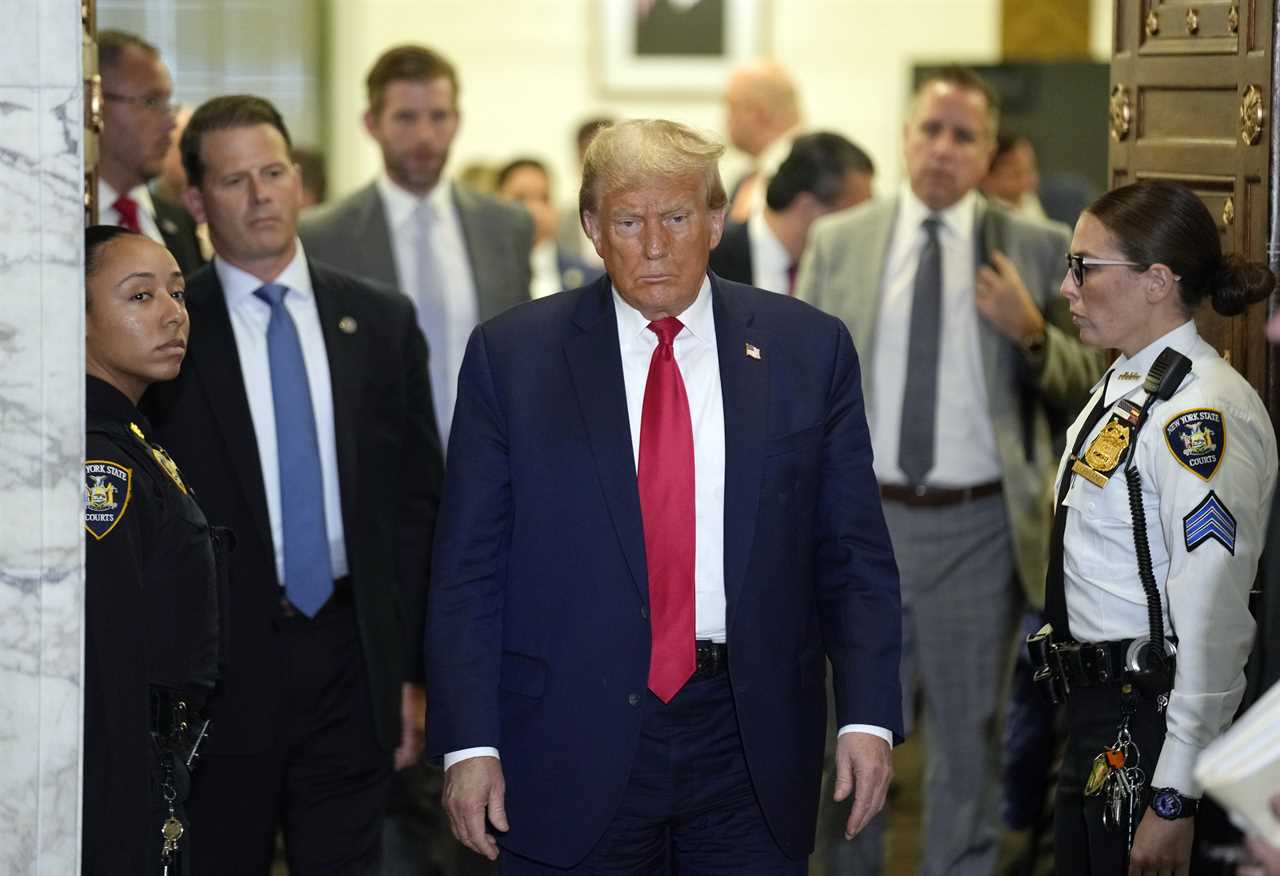
Federal prosecutors on Friday narrowly avoided an appeals court ruling that could have upended their criminal prosecution of Donald Trump, but the legal battle will continue over a federal obstruction statute that has become a cornerstone of cases stemming from the storming of the Capitol on Jan. 6, 2021.
A divided panel of the D.C. Circuit Court of Appeals, in a long-awaited opinion, ruled that there are numerous ways for the government to prove that Jan. 6 defendants acted “corruptly” when seeking to obstruct Congress’ proceedings. The decision is a bullet dodged for special counsel Jack Smith, because a D.C. Circuit ruling that narrowly construed the meaning of “corruptly” could have derailed Smith’s prosecution of Trump on an obstruction charge.
The judges ruled, 2-1, that efforts by some Jan. 6 defendants to sharply limit the conduct covered by the federal obstruction law were misguided. The ruling, which upheld a jury conviction for former Virginia police officer Thomas Robertson, concluded that efforts to install the losing presidential candidate could be enough to support an obstruction conviction.
The opinion is likely to be appealed to the full bench of the D.C. Circuit or to the Supreme Court. But it nevertheless is an important milestone with repercussions for hundreds of Jan. 6 prosecutions, including Trump’s. The judges have labored for months to navigate the complexities of the federal “obstruction of an official proceeding” statute, a felony with a 20-year maximum sentence that was passed in the wake of the Enron scandal.
Prosecutors have routinely used the statute as the leading charge for those who breached the Capitol intending to disrupt Congress’ session to certify the 2020 election results. Defendants who have challenged the law say they were not acting “corruptly” because they believed Trump genuinely won the election and therefore didn’t intend a “corrupt” outcome.
Complicating the issue is the murky nature of what it means to “obstruct” Congress. All three judges on the case appeared to agree that lobbyists and peaceful protesters often attempt to influence the outcome of congressional policy debates but should not be subject to 20-year felonies for constitutionally protected actions.
The majority opinion Friday was written by D.C. Circuit Judge Florence Pan, who was appointed by President Joe Biden, and joined by Judge Cornelia Pillard, an appointee of President Barack Obama. They concluded that most forms of lobbying and peaceful protest wouldn’t meet the “corrupt” requirement they laid out, but Judge Karen LeCraft Henderson, an appointee of President George H.W. Bush, dissented, arguing that such actions might be swept into the definition her colleagues adopted.
Some judges have expressed concern that too broad a definition of “corruptly” could cover not only minor infractions at ordinary protests but even lobbying or the stalling tactics that are a routine part of lawmaking at the Capitol.
But precisely what conduct does meet that standard is fairly broad, the judges ruled. For example, the ruling Friday concludes that defendants who committed other felonies on Jan. 6 can be convicted of the obstruction of Congress charge — and subject to its 20-year maximum sentence — without prosecutors proving that they knew specifics about that day’s congressional proceedings.
Special counsel Jack Smith has charged Trump with three conspiracies connected to his effort to subvert the 2020 election, including one to obstruct Congress’ proceedings that day, the same charge faced by Robertson and more than 300 Jan. 6 rioters.
The majority opinion Friday also held that interfering with or impeding the electoral-vote certification on Jan. 6 in a bid to get Trump declared the victor of the 2020 election would be enough to sustain a conviction for obstruction of Congress.
"That evidence was plainly sufficient to support a finding that Robertson intended to secure the unlawful benefit of installing the loser of the presidential election, Donald J. Trump, as its winner,” Pan wrote.
Robertson was one of the first Jan. 6 defendants convicted by a jury of obstructing the proceedings that day. He carried a large stick with him on Capitol grounds and made physical contact with an outnumbered platoon of riot police making their way to the building, video of which led the jury to convict Robertson of assaulting an officer while wielding a dangerous weapon. A judge sentenced him to 87 months in prison.
In dissent, Henderson said a conviction under the obstruction statute should be allowed only when a defendant is seeking to obtain a “financial” or “professional” benefit or to improperly escape justice either for himself or another person.
Henderson also provocatively insisted that Pan misunderstood her own opinion from April in another obstruction-related challenge from a Jan. 6 defendant, with Henderson declaring that Pan’s description of her own ruling “cannot be right.”
Henderson said that splintered April ruling effectively agreed on the narrow definition of “corruptly” she endorsed Friday, but Pan and Pillard disagreed.
Pan also said the effort to get Trump certified as the winner when he was not could qualify as the kind of “professional” benefit Henderson argued could be used to involve the obstruction statute.
The D.C. Circuit rarely accepts cases for review en banc, which effectively wipes out the three-judge panel ruling and leads to reargument of the case before all 11 of the appeals court’s active judges. Taking a case en banc ordinarily requires six of those judges to vote in favor of that step. It’s unclear whether the court will do so here if Robertson’s lawyers ask for it, but in addition to Henderson, Judges Greg Katsas and Justin Walker — both appointed by Trump — have expressed concerns about the breadth of the use of the obstruction statute.
----------------------------------------
By: Kyle Cheney and Josh Gerstein
Title: Appeals court upholds broad use of obstruction law that prosecutors have deployed against Trump
Sourced From: www.politico.com/news/2023/10/20/appeals-court-obstruction-ruling-trump-00122742
Published Date: Fri, 20 Oct 2023 11:37:42 EST






